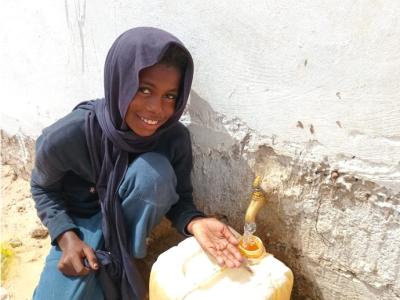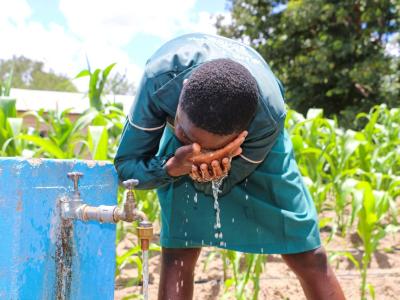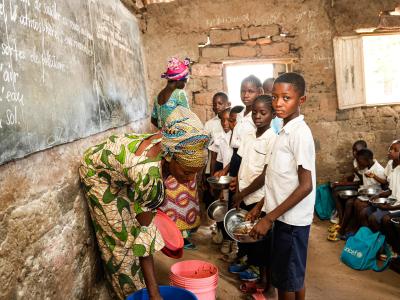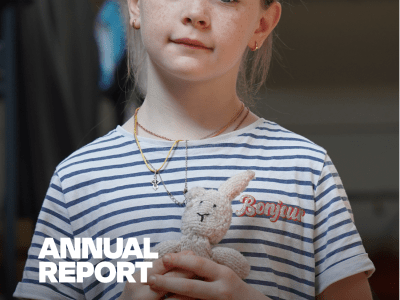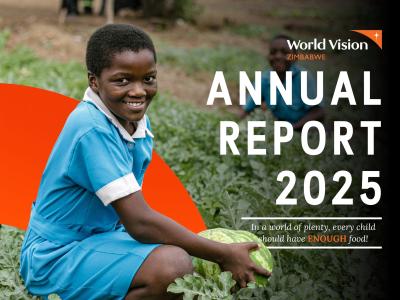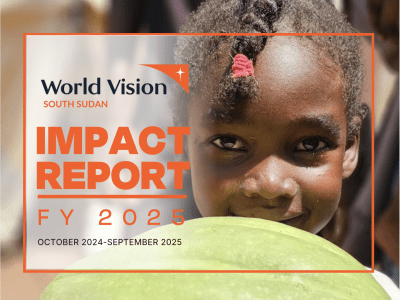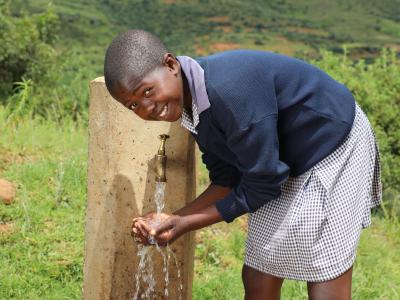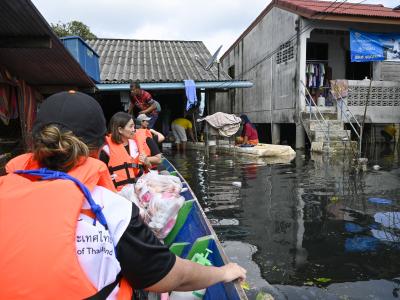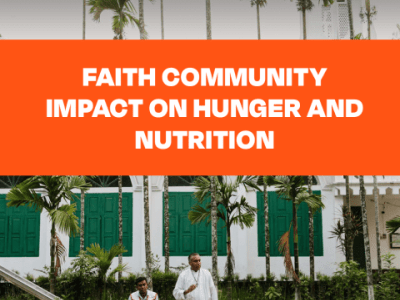article / February 16, 2026
When water comes home: Partnering to supply hope in Mauritania
In the peri‑urban neighborhoods of Riyad and Dar El Beida in Mauritania, access to safe drinking water has long been unreliable. To respond to this challenge, World Vision worked with local communities and its top ten private‑sector service providers to bring potable water directly into homes, and relieving the burden for 348 people.
article / February 13, 2026
Piped water system brings in new possibilities at Lupane Primary School
Today, 410 school children and 40 households in the surrounding community benefit from the piped water system, improving health, hygiene, and learning outcomes.
article / February 13, 2026
Hope at Last: Water for Life Project Delivers Safe Water to Jang Community
For decades, the children and families of Jang—a farming community in the Sawla-Tuna-Kalba District of the Savannah Region—struggled with limited access to clean water, relying on unsafe sources that exposed them to waterborne diseases and daily hardship. But returned after World Vision Ghana and partner, GIZ commissioned a solar-powered mechanised water system.
article / February 13, 2026
DR Congo: 74,731 children fed at school, but millions still waiting
This story highlights the urgent challenge of child hunger and education in the Democratic Republic of Congo, where more than 29 million students are enrolled for the 2025–2026 school year, yet only a fraction benefit from school feeding programmes. Through the voices of Valence and Jean, two 11-year-old pupils at TCHABILWA Primary School in Kalemie, Tanganyika Province, the article brings statistics to life. For them, a hot meal at school is more than food; it is energy to learn, play, and dream. Their joy reflects the impact of World Vision’s school feeding programme, which reached 74,731 children in Kasai and Tanganyika during the 2025 fiscal year. The results are encouraging: school enrolment in supported schools has significantly increased, especially among girls. Yet the needs remain overwhelming. Attendance gaps, dropouts, and the millions of children still unreached reveal the scale of the crisis. Ultimately, the story is both hopeful and urgent, showing how a simple meal can keep a child in class, while calling for greater investment and partnerships to ensure that many more children across the DRC are not left behind
publication / February 18, 2026
Annual Report 2025: Standing With Children Through Four Years of War in Ukraine
As the Ukraine Crisis Response enters its fifth year, the war continues to devastate millions of lives, particularly children. Over the past four years, World Vision Ukraine has reached more than 2.3 million people, including over 1 million children, providing critical support in education, mental health, protection, cash assistance, livelihoods, basic needs services and winterisation.
publication / February 17, 2026
World Vision Zimbabwe 2025 Annual Report
In this 2025 Annual Report, discover powerful stories that highlight World Vision Zimbabwe's (WVZ) transformative impact on the lives of the most vulnerable children. Driven by an unshakable dedication to championing the well-being of girls and boys in need, we are strategically refocusing and amplifying our efforts to tackle extreme vulnerability head-on.
publication / February 12, 2026
World Vision South Sudan FY26 Impact Report
2025 had been a challenging yet productive year for World Vision in South Sudan. Despite funding cuts and growing humanitarian needs, we pressed on—guided by our faith and our commitment to serve. The year had been a testament that when Christ is placed at the centre of our work, hope endures and impact is possible, even in the most difficult circumstances.
article / February 19, 2026
From Fear to Dignity: How Access to Clean Water and Safe Sanitation Transformed Senate’s Life
Access to clean water and safe sanitation through World Vision’s WASH program transformed Senate’s health, safety, and everyday wellbeing.
article / February 11, 2026
When the Waters Rose, So Did Compassion
Your Support Has Reached Over 15,200 People in Southern Thailand, but Recovery Is Still Ongoing
publication / January 29, 2026
Faith Community Impact on Hunger and Nutrition
A global synthesis of Faith-Based Nutrition Dialogues highlighting how faith communities address hunger, malnutrition, and nutrition systems gaps.
